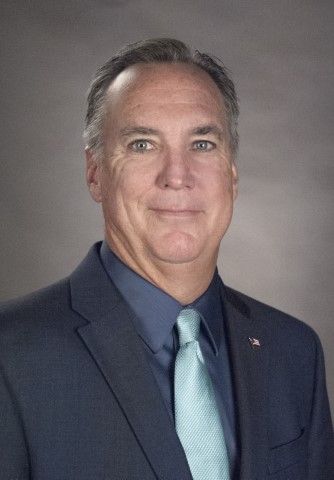
The finalists for WashingtonExec’s Pinnacle Awards were announced Oct. 8, and we’ll be highlighting some of them until the event takes place virtually Nov. 12.
Next up is DOD Industry Executive of the Year finalist Terence Winn, who’s director of tactical ISR at General Dynamics Mission Systems. Here, he talks career turning points, learning from failures and other career advice.
What key achievements did you have in 2019/2020?
The key achievements that our team had in 2019-20 were the design, development and delivery of two new vehicle-integrated electronic warfare systems and associated training for the U.S. Army. The Tactical Electronic Warfare System and the Tactical Electronic Warfare Light were both developed in response to an urgent need from the Army to address critical gaps in EW technology.
While we understood the requirements, we took the time to work closely with customers, users, suppliers, trainers and maintainers on a daily basis to ensure that all aspects of the product lifecycle were considered, and that the systems met the warfighter’s needs in the field.
This personal involvement emphasized the urgency of our project, helped improve communication with internal and external customers and removed some of the barriers to keep us moving forward and ahead of schedule. To use a sports analogy, I coached and guided the development; however, the key to our success was our great team who took on these challenges and delivered a tremendous capability to the U.S. Army in a very short time.
What has made you successful in your current role?
There are two aspects that I believe have led to my success in my current and past roles. The first is active listening. With the current COVID-19 pandemic, listening is now more important than ever since we are often no longer physically in the same place. It is sometimes difficult to watch people’s body language and mannerisms on phone or video calls.
The art of listening sounds easy, but it is something you must really work at. You need to be actively engaged in discussions and listen to what is being said and what is not being said. One of my peers is masterful at asking questions that cannot be answered with short answers and has taught me a lot about really listening throughout the years. Listening and diving into discussions with enthusiasm has really helped me better understand my team and helped us quickly and comprehensively address issues and tasks.
The second aspect that I believe has led to my success is focusing on people and fostering a team environment. It is important that we understand that our team is not just General Dynamics Mission Systems; it includes customers, suppliers, trainers and maintainers. I hold daily standups with my team to ensure that the entire team understands their role and how it is important to the overall success of the program.
It is important to know your team’s strengths, weaknesses and what motivates them. It is often easy to “settle” with the team you are given; the real challenge is moving the puzzle pieces around to put the right team in place that will make your program successful.
What was a turning point or inflection point in your career?
I learned early on in my career that you need to have fun doing your job. While there are obvious stressful and low points, it’s important to embrace the positives and have a good balance between work and life. As a result, I often participate and organize social activities such as lunch and happy hours with our staff and occasionally customers to help the team decompress.
Even during the current COVID-19 pandemic, we still find time to hold virtual happy hours! During these gatherings, we make it a point not to discuss work issues and just enjoy each other’s company.
What’s one key thing you learned from a failure you had?
As in all business, you have wins and losses when you are competing for new contracts. A loss in a competitive environment can be considered a failure, however, it is important to turn these losses into learning opportunities. Customer debriefs are essential to learning our weaknesses and how we can improve.
When you are the incumbent on a competitive recompete, it is even more important that you work harder and not get complacent. The old adage “Don’t drink our own bath water” is important in these cases, so we always make it a point to include outside support to give us a fresh perspective. The one takeaway I learned early is to always outwork your opponent in every aspect!
What’s your best career advice for those who want to follow in your footsteps?
The best career advice I can offer is to look for opportunities to expand your knowledge of other functional areas. Over my 35-year career, I’ve taken on three rotation assignments in areas such as program management, operations and supply chain. Putting myself in the shoes of other teammates and contributing in different ways has provided me with new learning experiences. Each functional area gave me new perspectives and helped me gain experience by taking on new responsibilities.
Change is sometimes painful and while I was very hesitant on my first rotation, it turned out to be one of the best experiences in my career. Never stop learning and always look for an opportunity to take on a new role outside of your comfort zone.

